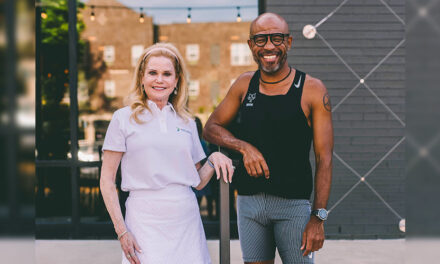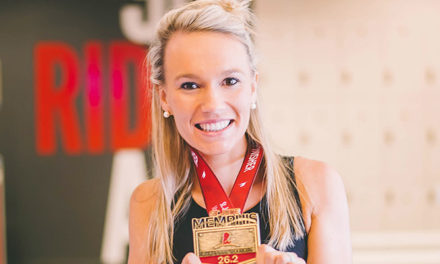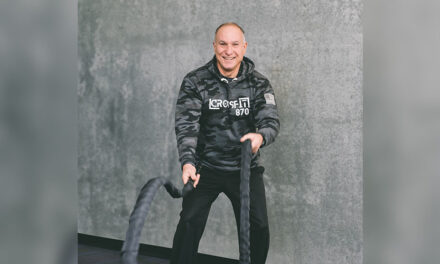According to the American Diabetes Association, about 1.25 million Americans have Type 1 diabetes, and an estimated 40,000 people will be diagnosed each year. Though statistics vary by source, it is undisputed that the Mid-South has a higher incidence of the disease than most other regions.
Type 1 diabetes is a chronic autoimmune condition that makes the body unable to produce insulin, the hormone that enables the body to convert blood glucose to energy. Without insulin, the body has to resort to breaking down its own tissue. Another, potentially fatal, consequence for people with Type 1 diabetes is Diabetic ketoacidosis, or DKA, which is an overload of glucose in the bloodstream.
The cause of Type 1 diabetes is not yet known, and there is not yet a cure. Thanks to dedicated researchers, healthcare professionals, activists, and educators, however, the disease can be managed.
Two local champions for that cause are Dr. Kashif Latif at AM Diabetes & Endocrinology Center in Bartlett and Fox News Anchor Darrell Greene. For both men, it is an intensely personal cause. Dr. Latif’s son, Ahmed, was diagnosed with Type 1 diabetes before his first birthday. The rigor of managing his son’s disease led Dr. Latif to return to school for a specialty in endocrinology. He opened AM Diabetes and Endocrinology Center in 2002.
Darrell Greene was diagnosed in 1993 when he was 23 and just starting his career on air. He arrived in Memphis in 2010 and was referred to Dr. Latif.
“I get along with Dr. Latif so well because he’s a man with a mission,” Darrell says. “We share the same mission.”
Both men are deeply devoted to fundraising and diabetes awareness. Darrell is a chapter board member and congressional advocate for the Junior Diabetes Research Foundation and has done dozens of news stories about the disease. Meanwhile, Dr. Latif is working to break new ground in patient care. In addition to setting up the world’s first insulin pump center, he is currently developing Type 1 diabetes registry for Shelby County and building a gym designed for the unique needs of his patients.
“The gym will have a controlled environment,” Dr. Latif explains. “Not only will it allow patients to monitor their blood sugar before and after exercise, but our exercise prescriptions will be tailored to diabetes-related complications such as eye disease, nerve damage, and heart disease.” He has designed this facility as a prototype for other healthcare providers to follow.
In August 2018, Dr. Latif adopted a cutting-edge technology: a capsule-sized implant called EversenseCGM that sends real-time blood sugar readings directly to an iPhone. Darrell was the first patient in the region to have this procedure.
“He asked me if I wanted the implant, and I had no hesitation.” Darrell says it required a five-millimeter incision and took about five minutes. “You either have to own Type 1 diabetes, or it will own you,” Darrell explains. “Once the disease owns you, you’re in trouble. This device removes one layer of hassle and gives me a lot more control.”
The only present drawback to the implant is that it isn’t yet covered by most health insurance plans. The current cost for the implant is about $1,700, and the device must be replaced four times per year. The hope is that the cost will come down, and insurance companies will begin to see the long-term benefit.
Darrell continues to lobby for affordable healthcare. “The skyrocketing cost of fast-acting insulin has created life-or-death dilemmas for too many people,” he says. “Some lawmakers are fired up, but not enough. I don’t have the answer, but I’m a consumer and I have a voice. I’m telling them what I need.”
Both Darrell and Dr. Latif agree that living with Type 1 diabetes means recalibrating your approach to diet and exercise. “I eat very few carbohydrates unless my blood sugar is low,” Darrell says. “Being from the South, that’s hard. Nobody makes better biscuits than me.”
Even though managing the disease can be challenging, Darrell continues to take care of himself and support others. “I always think of kids who are diagnosed at age 10, 12, or 14. They’re under peer pressure and haven’t found themselves yet. I want to tell them, ‘You’re not different. As a matter of fact, you’re a little stronger than the kid next to you because you have to think like a doctor, nutritionist, and mathematician.’”
While researchers continue to strive to understand Type 1 diabetes and find for a cure. Darrell Green and Dr. Latif are devoted to helping people with the disease take control and improve their quality of life.
By Caroline Sposto








